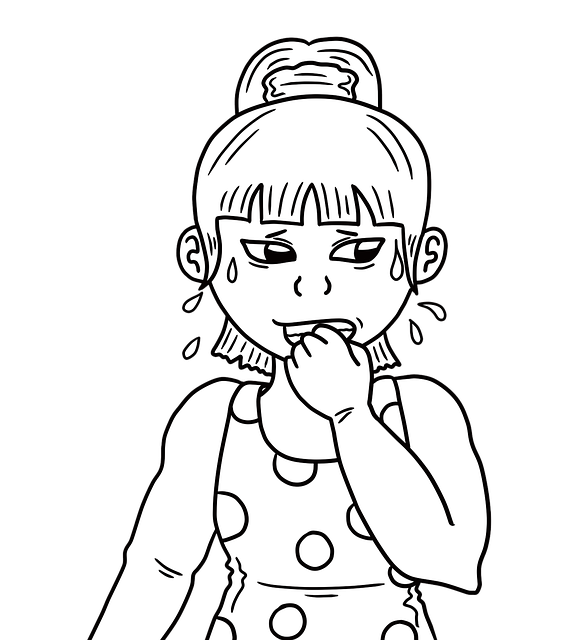Anxiety relief therapy is essential when symptoms persist over two weeks, impacting daily life. Recognizing signs like constant worry and physical symptoms is key. Professional help offers tailored CBT, exposure, mindfulness, and IPT for effective long-term management. If anxiety disrupts life, consider therapy to address root causes and build resilience.
Anxiety is a common experience, but when it becomes persistent and severe, it may be time to seek professional help. Recognizing the signs of chronic anxiety is crucial for finding effective solutions. This article explores self-help strategies versus professional support, various types of therapy for anxiety relief, and key indicators that it’s time to take action. Learn how to navigate the path to calming your mind and reclaiming control over your life with the right therapy.
Recognizing Persistent and Severe Anxiety
Anxiety is a normal human response to stress, but when it becomes persistent and severe, it’s crucial to recognize the signs. Many people experience occasional feelings of worry or nervousness, but chronic anxiety can disrupt daily life and impact overall well-being. If your anxiety symptoms last for more than two weeks and significantly interfere with your ability to function, it might be time to seek professional help. This could involve anxiety relief therapy, where a qualified mental health professional provides strategies and tools tailored to your specific needs.
Persistent anxiety can manifest in various ways, such as persistent worry or fear, restlessness, difficulty concentrating, insomnia, irritability, muscle tension, and even physical symptoms like increased heart rate or chest pain. These symptoms can be overwhelming and may indicate an underlying issue that requires professional attention. Seeking timely support through anxiety relief therapy is essential to managing these persistent and severe symptoms effectively.
Self-Help Strategies vs. Professional Support
While many people turn to self-help strategies for managing anxiety, there comes a point where professional support becomes essential. Self-care techniques such as meditation, deep breathing exercises, and lifestyle changes can offer immediate anxiety relief. However, these methods often provide temporary solutions. If your anxiety persists, worsens, or significantly impacts your daily life, it’s crucial to consider therapy.
Professional help provides a safe and structured environment where you can explore the root causes of your anxiety. Therapists use evidence-based techniques tailored to your specific needs, offering long-term strategies for managing symptoms. Anxiety relief therapy is not just about learning coping mechanisms; it empowers individuals to develop resilience, gain a deeper understanding of themselves, and cultivate healthier ways of interacting with challenging situations.
Types of Therapy for Effective Anxiety Relief
Anxiety can be managed effectively through a variety of therapeutic approaches, each offering unique benefits for different individuals. Cognitive Behavioral Therapy (CBT) is a widely recognized and effective method that helps individuals identify and change negative thought patterns contributing to anxiety. By challenging distorted beliefs and replacing them with realistic thoughts, CBT empowers people to face their fears and manage symptoms. Another popular approach is Exposure Therapy, which gradually exposes individuals to situations or objects that trigger anxiety in a safe and controlled environment. This process desensitizes the mind and body to the feared stimuli, leading to reduced anxiety responses over time.
Additionally, Mindfulness-Based Therapies have gained popularity for their ability to teach individuals how to stay present and focused on the here and now, rather than dwelling on anxious thoughts. Techniques such as meditation and deep breathing exercises promote relaxation and a sense of calm, helping to manage symptoms. Interpersonal Therapy (IPT) is also beneficial, focusing on improving communication skills and resolving relationship conflicts that may contribute to anxiety. These therapeutic options, when tailored to individual needs, can provide powerful tools for achieving lasting anxiety relief.
When to Take Action: Signs It's Time for Help
Anxiety is a normal part of life, but when it starts interfering with your daily activities and general well-being, it’s time to take action. While some people may be able to manage their anxiety through self-care practices like meditation or exercise, others may require professional help to find lasting relief. Recognizing the signs that it’s time to seek anxiety relief therapy is crucial for prioritizing your mental health.
One of the most noticeable indicators is when anxiety becomes overwhelming and persistent, making it hard to concentrate or carry out routine tasks. If you’re constantly worried or stressed, even in situations where there’s no apparent threat, and these feelings don’t subside after a few weeks, consider reaching out to a mental health professional. Additionally, if your anxiety leads to significant changes in behavior, such as avoiding social interactions or isolating yourself, it may be a sign that therapy is necessary for effective management.
Anxiety can significantly impact daily life, but recognizing when to seek professional help is crucial. If self-help strategies no longer provide relief and symptoms persist or worsen, it’s time to explore the various types of therapy available for effective anxiety relief. Don’t let anxiety control your life; take action and reach out to a mental health professional today to reclaim your well-being.
